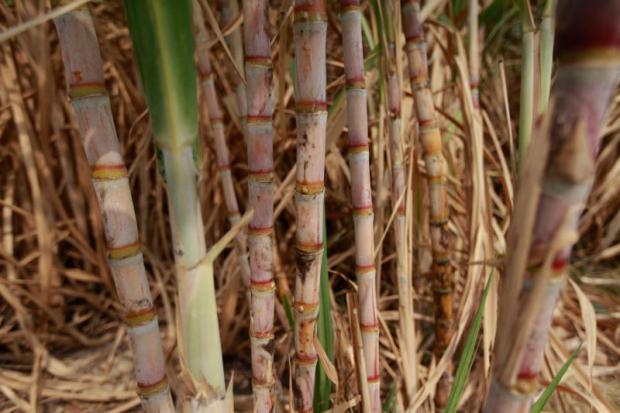
Unfavourable weather has delayed Thailand's sugar crushing season, threatening a reduction in sugar output for the 2016/17 crop.
The drop will prevent Thailand, the world's second largest sugar exporter, from capitalising on rising global sugar prices at a time it is being challenged by Brazil over subsidies to the Thai sugar industry, said industry officials.
Brazil is the world's biggest sugar shipper.
Thailand's 2016/17 sugar crushing season began on Dec 6, a delay of one month from previous years as a longer-than-expected rainy season disrupted the harvest.
The recent drought that hit Thailand early this year as well as abnormally excessive rains during the harvest period are expected to lower the commercial cane sugar (CCS).
CCS measures the sweetness of sugar cane. Higher sugar content in sugar cane results in a larger sugar output, which is reflected in a higher CCS.
"We expect the CCS to be a little low compared with the previous crop," said Sirivuth Siamphakdee, chairman of the Thai Sugar Millers Corporation Ltd.
Thailand is forecast to produce 91-92 million tonnes of sugar cane, or 9.1-9.2 million tonnes of sugar, down by 3 million tonnes from the previous 2015/16 crop.
This is in line with the forecast of the Office of Cane and Sugar Board (OCSB), which also expects Thailand to produce 9.1-9.2 million tonnes.
Falling sugar output could result in Thailand missing a chance to gain more profit from sugar prices trending upwards.
Global sugar prices dropped substantially over the past few years from a record high of 36 US cents per pound in 2012 to as low as 11 cents late last year as a glut and weak global economy cut demand.
The price of benchmark New York raw sugar has risen to above 20 cents per pound recently and is expected to rise further due to falling supply in major producing countries.
In another development, Thailand is to overhaul its sugar production and distribution systems for the first time in more than three decades in order to avoid being challenged by Brazil, the world's biggest sugar producer, at the World Trade Organization.
OCSB secretary-general Somsak Jantararoungtong said Thailand has discussed this issue with Brazil twice and the countries agreed in principle that Thailand is on track to overhaul its sugar system to be fair to all parties.
"The Thai government also agreed to correct the system and we are expected to start the process to amend sugar-related laws and regulations by February, which will apply to the 2017/18 crop," said Mr Somsak.
According to the OCSB, Thailand will have to revoke its current 70:30 profit-sharing system, in place since 1984, which will require cancelling its quota system and floating domestic sugar prices.
Brazil is challenging Thailand over subsidies for sugar producers that it says have dragged down global prices and allow Thailand to win a larger market share at the expense of Brazilian producers, conduct that is not in line with international trade agreements.
The 70:30 profit sharing system between sugar millers and cane growers provides monetary support from the Cane and Sugar Fund to sugar cane producers.
The fund raises the money itself, largely from yearly sugar sales. When the fund does not have enough money, it seeks loans from the state-owned Bank for Agriculture and Agricultural Cooperatives.
Thailand's plan is to revoke the sugar quota system, which sets aside three quotas each year to prevent sugar shortages.
Quota A sets aside 2.2-2.5 million tonnes of sugar for domestic consumption, quota B for state-run sugar exports and quota C sets the quantity of sugar to be exported by private sugar millers.
Thailand also needs measures to deal with other problems when it scraps the quota system, as global price rises encourage traders and profiteers to smuggle domestic sugar to be sold outside the country.
